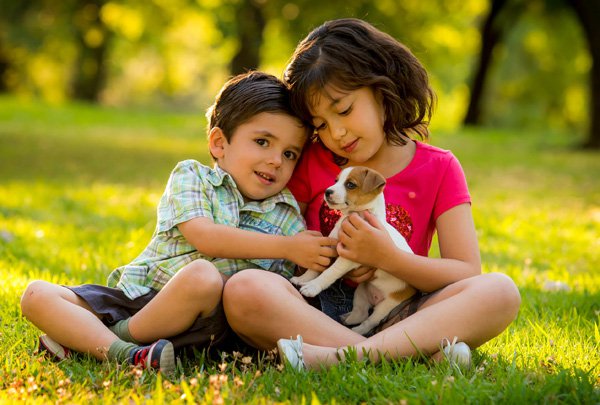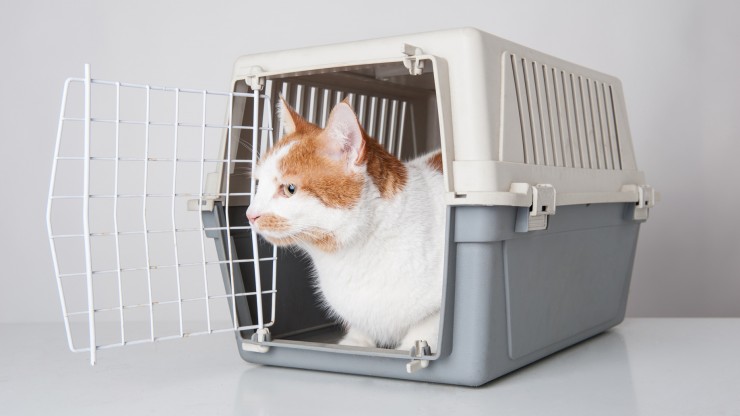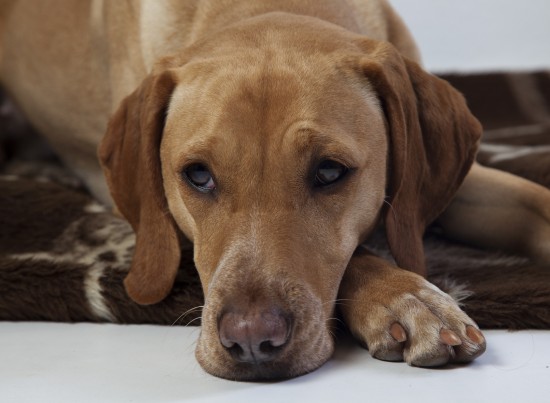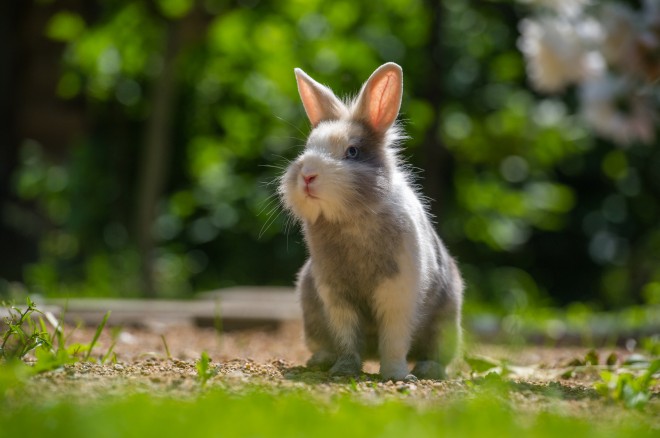
The decision to bring a new puppy into the family affects more than just the people who will have to house train said puppy. Other pets in the home are likely to have a difficult time adjusting to what they are likely to see as an interloper. Because dogs have their own societal hierarchy, it is important to introduce a new puppy in a manner that is safe and praises both dogs for positive behavior.
Dogs naturally live in packs, and in a household setting with people, the dogs often perceive the humans as part of the pack. In the case of indoor family dogs, there is usually one human whom the dogs perceive as in charge, or the alpha. Dogs should be trained to view all human members as out-ranking the animals in a household, even children. This helps ensure a safe home environment for the people and the dogs. But even with humans in the household, dogs have a hierarchy all their own.
Usually, dog hierarchy depends significantly on age and residency. As a general rule, an adult dog will naturally outrank a puppy. The same also usually goes for the dog whose territory the dogs are in. Because dogs are territorial, it is a good idea to introduce a new puppy in a neutral place. A neighbor's yard is often a convenient, territory neutral zone.
Although the dogs are in a neutral zone, it is still important to keep them leashed. Allow them to sniff and praise the dogs for positive behavior. After the initial introduction, put a little space between the dogs for a few minutes so they can take a break. After a few minutes, allow them to approach each other again. Be careful to give positive reinforcement, while ensuring that the dogs do not become aggressive. If one dog does become aggressive, separate the animals and try again later.
An adult dog might feel threatened by a new puppy coming into the family unit. For this reason, it is important to give each dog their own space-- that means their own beds, toys, bones, and attention. If you are using puppy training pads, try to keep the pads out of the adult dog's favorite areas. Allowing the puppy to pee near the adult's bed or other favorite spot will make the area smell like the pup's territory. This is likely to cause the adult dog to feel that it needs to defend its territory. Instead, place the doggy pads near the door- the adult dog will be less troubled by the scent and it will help reinforce puppy potty training.
Above all, do not ignore your adult dog for the adorable puppy. Especially in the early days of the puppy's new presence, make sure to give both dogs loads of attention, treats, and positive reinforcement. The goal is to ensure that the entire family, especially the resident adult dog, views the new puppy as a playmate and happy addition to the pack. Encouraging a strong bond between the elder and younger dogs will also make puppy house training easier, as the puppy will watch and learn from the older dog. If the older dog feels pack kinship with the new puppy, it is more likely to be a happy helper in housebreaking.
House training a puppy is hard work. Make the task easier for you and your puppy with Doggy Pads. Eco-friendly disposable puppy training pads will help your puppy train faster. For help with puppy training, visit:
http://www.doggypads.com/
 Prevent Horse Colic And Ulcers With Horse Ulcer Supplements
Prevent Horse Colic And Ulcers With Horse Ulcer Supplement
Prevent Horse Colic And Ulcers With Horse Ulcer Supplements
Prevent Horse Colic And Ulcers With Horse Ulcer Supplement
 The Planted Tank - How To Grow Plants Underwater
The Planted Tank
The Planted Tank - How To Grow Plants Underwater
The Planted Tank
 Seven Common Mistakes Cat Owners Make When Transporting Their Cats
Seven Common Mist
Seven Common Mistakes Cat Owners Make When Transporting Their Cats
Seven Common Mist
 Tetanus Or Lockjaw In Cats And Dogs
Tetanus Or Lockja
Tetanus Or Lockjaw In Cats And Dogs
Tetanus Or Lockja
 Why Exercise Is So Important For Rabbits
Why Exercise Is S
Why Exercise Is So Important For Rabbits
Why Exercise Is S
Copyright © 2005-2016 Pet Information All Rights Reserved
Contact us: www162date@outlook.com